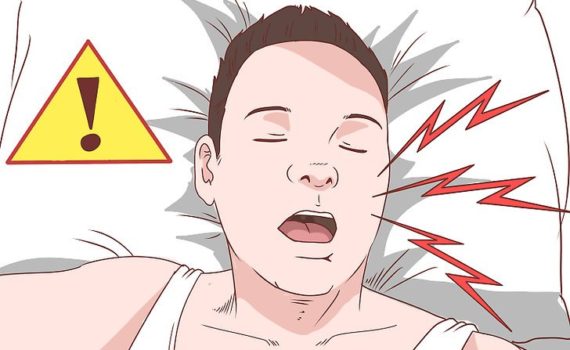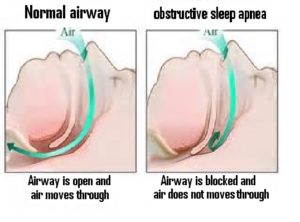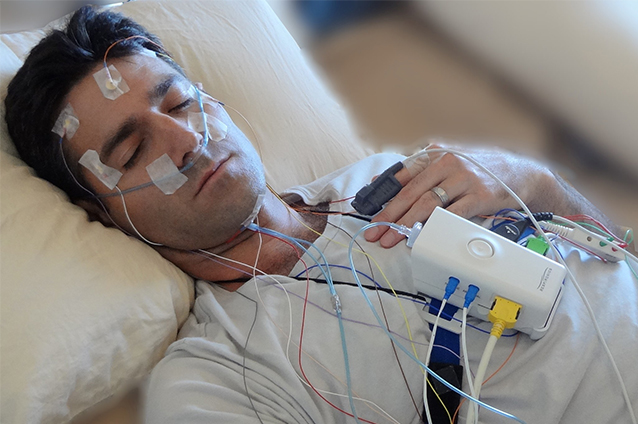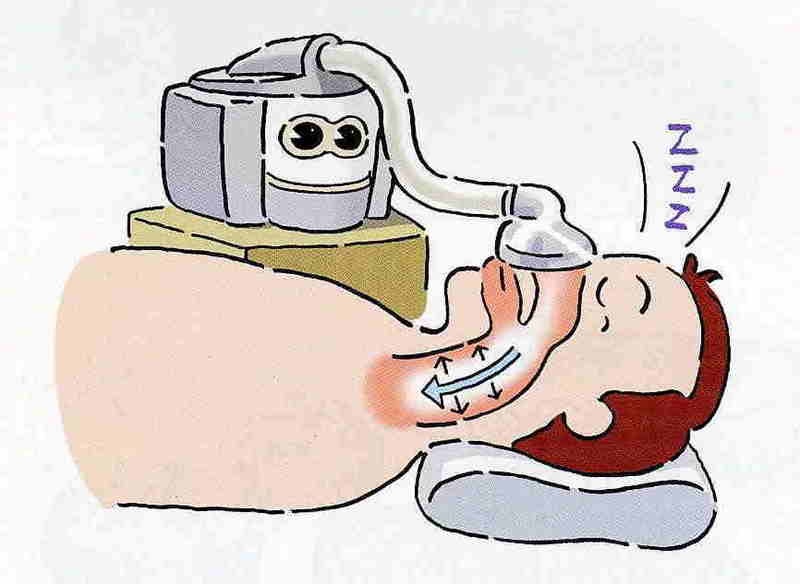
What is Obstructive Sleep Apnea Syndrome (OSAS)?
Snoring is one of the main symptoms of obstructive sleep apnea (OSA). Daytime sleepiness, fatigue despite adequate sleep, morning headaches, insomnia, difficulty in concentration, depression, forgetfulness, high blood pressure, high blood sugar, impotence, weight gain, and increased nighttime urination may be caused by OSA.
Patients with OSA are rarely aware of it; symptoms may be present for years or even decades without identification.
What are the Reasons for Sleep Apnea?
While sleeping, muscles will relax (including the muscles of the tongue and the soft palate) which will cause narrowing in the back of the throat. This will interfere with the breath and it will cause the snoring (the sound of the passed air through the narrowed airway).
If the collapse of the airway is complete, then the breath will stops, and this is called apnea.
Frequent apneas will lead to frequent neurological arousal, which rarely result in complete awakening, but can have a significant negative effect on the quality of sleep and the patient may suffer from fatigue and drowsiness the next day.
What are the Factors that can Contribute to Sleep Apnea?
Most individuals with OSA suffers from obesity, but obesity is not always present. A smaller than normal jaw, large tongue, and enlarged tonsils can be factors too. Old age men and post-menopause women are at increased risk of developing sleep apnea. Lifestyle factors such as smoking and alcohol may also increase risk of OSA.
How do you Diagnose OSA?
Diagnosis is based on a combination of patient history and a polysomnography.
What is Polysomnography?
Polysomnogram is an overnight sleep study. A trained sleep technician will prepare you for the test and apply sensors to the head, face, chest, abdomen, and legs. None of these devices hurt, then the doctor will monitor the physiological indicators during sleep including brain waves, heart rate, breathing rate, and oxygen level.
What is the Treatment of Sleep Apnea?
There is a variety of treatments for OSA.This involves lifestyle changes. Lifestyle changes may include losing weight (if overweight), avoiding alcohol ,quitting smoking and sleeping pills, sleeping on your side, using nasal sprays or breathing strips, and avoiding sleep deprivation. Special appliances that are placed in the mouth can help those with mild-to-moderate sleep apnea. These appliances prevent the tongue from blocking the throat and help move the lower jaw forward during sleep.
Can surgery treat Sleep Apnea?
In some patients, surgical procedures effectively reduce sleep apnea in those who have too much soft tissue or malformed tissue that blocks the airflow through the nose or throat. Surgical options can range from nasal surgery to improve breathing to help adjust to CPAP, restructuring of the throat tissue to lessen collapse, or even a nerve stimulation implant to open the airway
What is the Specific Treatment for Sleep Apnea?
Continuous positive airway pressure (CPAP), in which a face mask is attached to a tube and a CPAP machine that blows pressurized air into the mask and through the airway to keep it open. so CPAP prevents airway closure while in use, but apnea episodes return when CPAP is stopped or it is used improperly. Many types and styles of devices are available. Some patients are not able to adhere to CPAP due to pressure intolerance. Patients who cannot tolerate CPAP may benefit from other types of pressure delivery devices.
some individuals may need a combination of therapies to successfully treat their condition.
What are the Potential Risks of Untreated Sleep Apnea?
Untreated sleep apnea may put you at risk of a number of life threatening conditions including heart attack, stroke, hypertension, diabetes, and even other diseases.
Take this Sleep quiz to evaluate your risk of having sleep apnea
- Are you a loud, habitual snorer?
- Has your partner ever witnessed you choking, gasping, or holding your breath during sleep?
- are you regularly feel unrefreshed in the morning or have morning headaches after waking up from a full night’s sleep?
- Do you fall asleep easily in day time while reading, watching TV, or driving?
- Do you suffer poor concentration, attention, memory loss, irritability, or bad mood?
- have you been diagnosed with high blood pressure or obesity?
If you answer yes for two or more questions, you may be at risk of sleep apnea or other sleep disorder and take the results to your doctor to discuss further.


